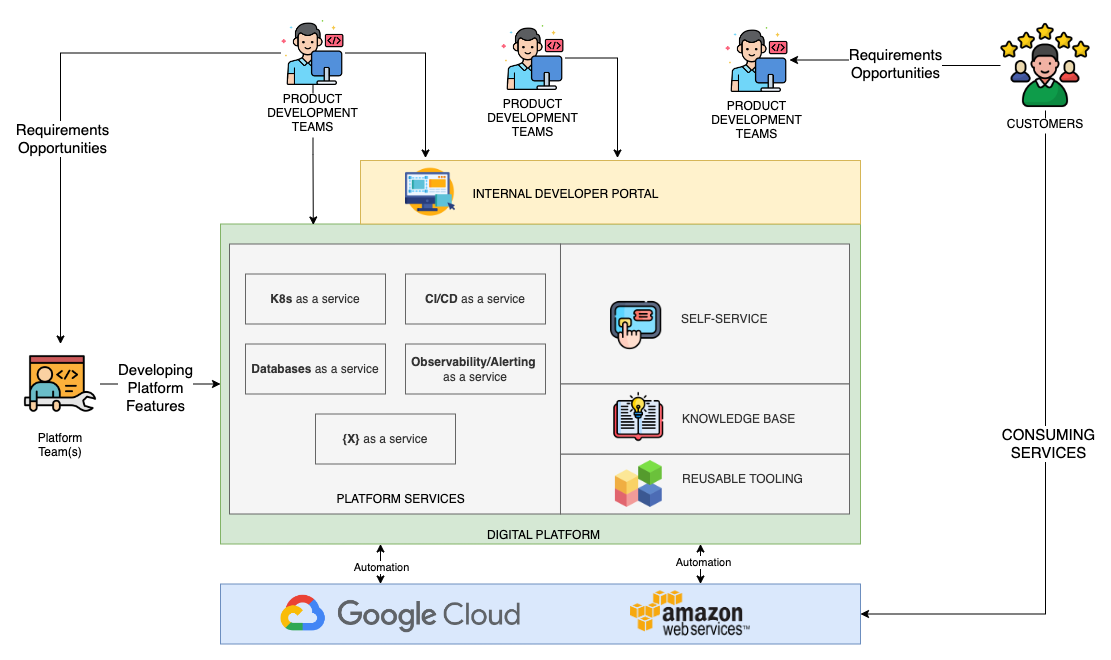Standardization and Consistency: Platform engineering establishes standardized tools, processes, and frameworks that promote consistency across development teams. This consistency reduces friction in development workflows and ensures that all teams are working with the same set of best practices.
Improved Developer Productivity: By providing a set of pre-built components, automation tools, and self-service capabilities, platform engineering enables developers to focus more on building features and less on managing infrastructure.
Cost Optimization: By automating infrastructure provisioning, optimizing resource utilization, and leveraging cloud services efficiently, platform engineering can help organizations reduce their overall infrastructure costs
Reliability and Resilience: Platform engineering helps to build resilient and fault tolerant systems, which serve multiple products and work streams. So those teams don’t have to configure monitor and spend time on building resilient cloud components, but the product.
Security and Compliance: Platform engineering plays a critical role in ensuring the security and compliance of software applications. Platforms usually centralize and abstract security aspects so different teams again can focus on what matters most, product development.



